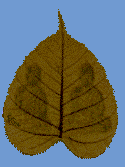Then, ... what did I know about Samadhi?
I still feel regrettable that one of my mother's wish was not fulfill before she passed away. She told me that she wants to stay in the Pagoda. Little know what she and other old men and women would do there. When I stay with the monks, I saw many old men and women come to stay in small hut built in the pagoda during the period of "Chol Vossa" or 'Kan Vossa." According to his memory, a friend of mine noted that the old people came to stay in the pagoda only the last 15 days of the "Chol Vossa or Kan Vossa" period. This is called "Kan Ben" period which will be ended by the last but very special day call "Pchum Ben" (ancestor Day).
'Chol Vossa' or 'Kan Vossa"is a three-month period of the raining season that monks take enhanced application of Dhamma practice with stricter 'vinaya' (discipline). I knew they wake up at 4:00 am and join group praying at the temple. Another restriction is that monks cannot stay overnight outside the Pagoda. What else you know?
As a young boy, I recalled the beautiful time of of the fifteen-days of 'Kan Ben'. Though the often intermittent raining was abundant, day and night, food was better supplied to the pagoda by the Cambodia people to support the monks, eventually more or less it would also benefit the Pagoda boys. People from different villages of groups take turn in this supply. Particularly, they all come on the Pchum Ben Day which is the richest day of the years. Besides the plenty of foods for the breakfast and lunch (no food service to the monks after noon time), there would be plenty of cakes for the day (Noum An-soam, Noum-Korm, Noum Boat). We can keep these cakes for many more days afterward through warming them up. Both monks and Pagoda boys enjoy it very much. The pagoda pets are also well fed at that time. Beyond that what I love much was the Discourse on Preah Vesandor which occur for the whole days. This discourse was divided in 10 chapters. Each Chapter assigned to one monks to read Sastra for the people who choose the chapter related to them through the ballot. After each chapter session, the assigned monk will get plenty of supply ranging from slippers, notebooks, pencils, sugars, teas, etc, ... Eventually, it is also the big celebration for pagoda boy.
Maybe the above joy remembering overrides my other memory on what the old people would do while staying at the pagoda. I only know that they would learn praying and apply it in the morning and in the evening. I saw also some old women cook for the monks. Because of good contact, I also benefit some support from that old women. It was the head of fish she grilled and kept for me while the body of the fish she cook for the monks. Don't think that it is less important when I talk about grilled fish-head. It is really delicious. It was the best food for pagoda boy like me where food was scare. Not many pagoda boys got that benefit, except the ones who have good contact with the old women, who is polite and serviceable to the old women (supply of water is the most demanding one, since they are old and difficult to bring it from the river to their water pot.)
At that time, I learnt the word 'Thveu Thor" and I think it means that the old people who come to stay in the pagoda would learn praying. Later on, I learnt that they come for 'Samnak Thor' and I think something related to mediation. However, how and what they do it, I have no idea at all.
In sum, you can see, even being the pagoda boy, I have no idea about Dhamma and Samadhi. What do you expect others who stay far away from Buddhist source would know about these essence.

No comments:
Post a Comment